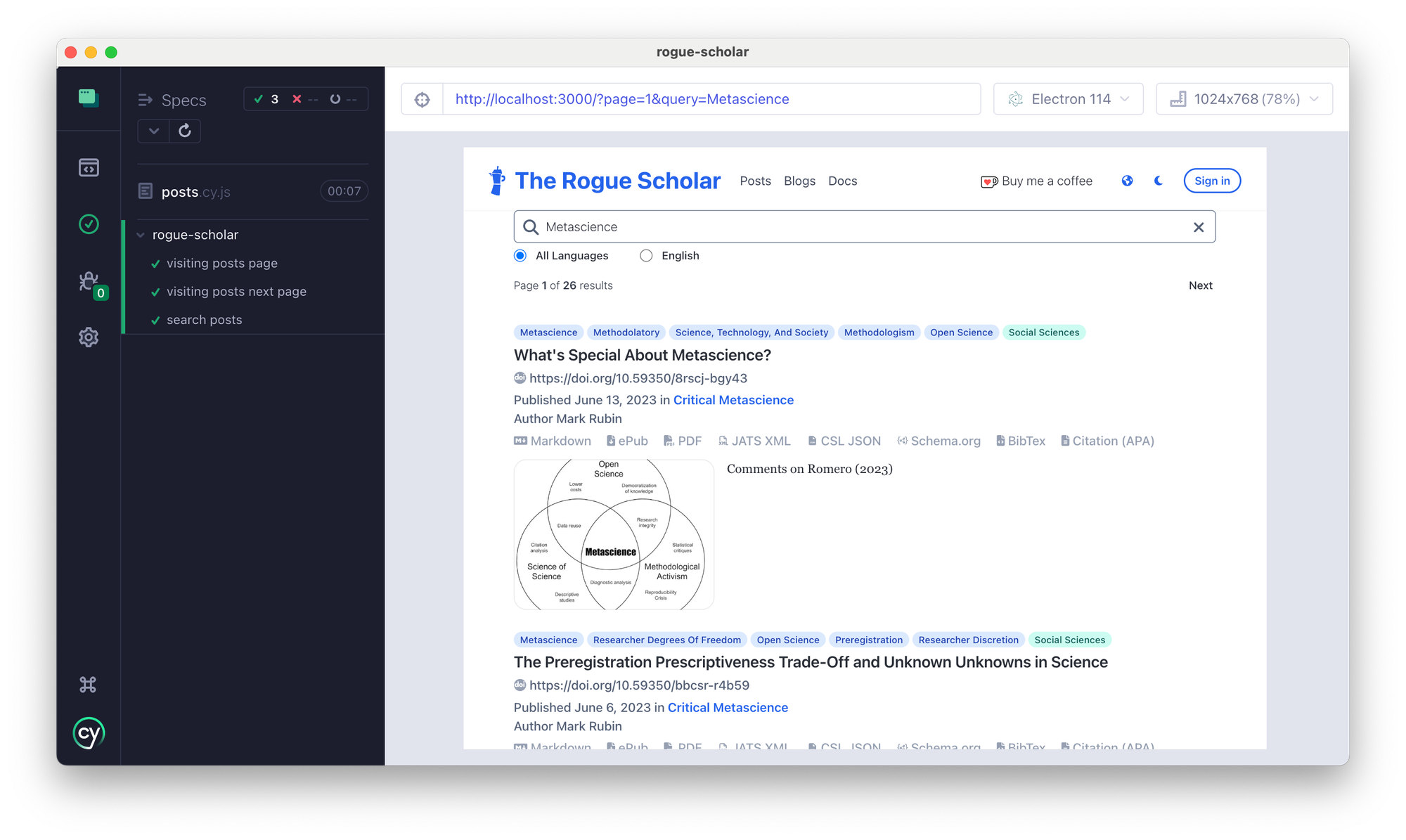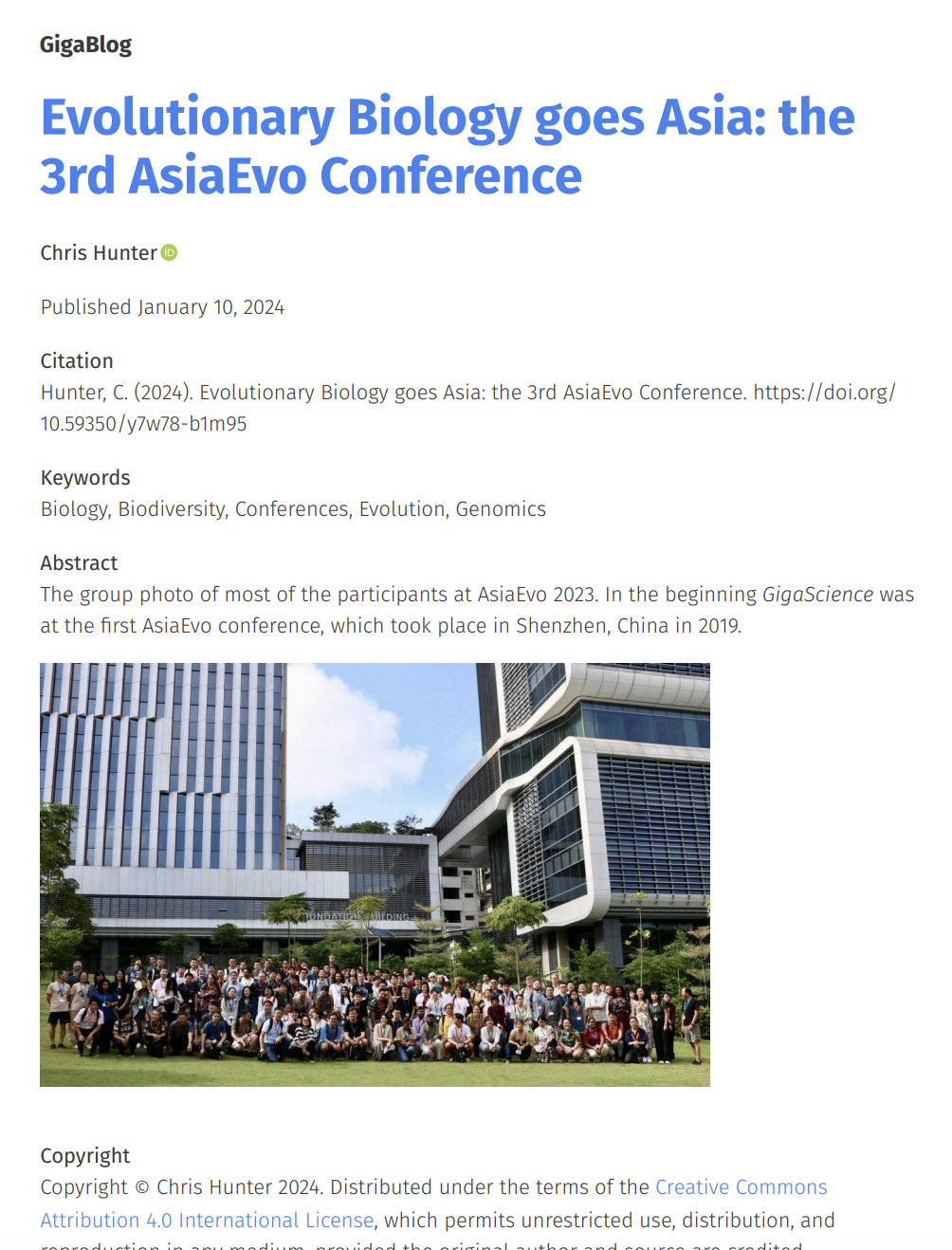
This week the references included in currently 1,123 Rogue Scholar blog posts have become much more powerful, as they now include the full set of scholarly metadata. These metadata are displayed in the Rogue Scholar web pages and can be fetched via an open API. One of my favorite personal blog posts – about the 10th anniversary of PLOS ONE, reference lists, and the X-Files TV series written in 2016 – nicely demonstrates this new functionality.








